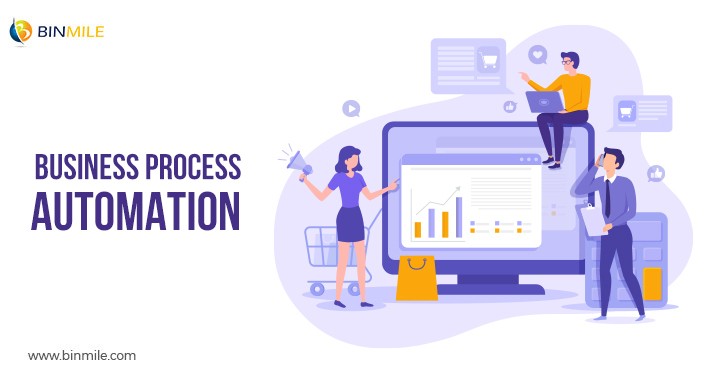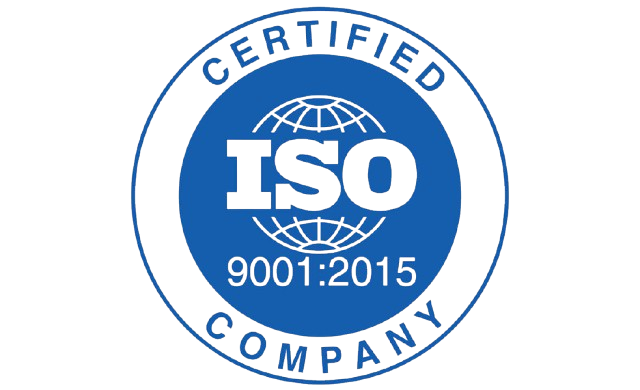Automation of Business Operations in Professional Services in Today’s World
The professional services industry has undergone a significant transformation in recent years, with automation playing a crucial role in driving operational efficiency, cost savings, and scalability. Professional services automation (PSA) refers to the use of software tools and technologies to streamline and optimize various business processes within professional services organizations, such as consulting firms, law firms, accounting practices, and IT service providers.
The importance of automation in professional services cannot be overstated. In an increasingly competitive landscape, firms are under constant pressure to deliver high-quality services while maintaining profitability. Automation enables these organizations to reduce manual efforts, minimize errors, and focus their resources on core service delivery, ultimately enhancing client satisfaction and fostering business growth.

Why Automate Professional Services Operations?
- Streamline Workflows and Reduce Bottlenecks
Professional services firms often deal with complex and interconnected processes, such as project management, resource allocation, and client communication. Automation helps streamline these workflows by eliminating bottlenecks, reducing redundancies, and ensuring seamless coordination among different teams and stakeholders. This not only improves operational efficiency but also enhances the overall quality of service delivery.
- Improve Accuracy and Consistency in Service Delivery
Manual processes are prone to human errors, which can lead to inconsistencies and potential issues in service delivery. By automating tasks like data entry, invoicing, and reporting, firms can ensure a higher level of accuracy and consistency, ultimately enhancing their credibility and reputation.
- Enhance Customer Experience and Satisfaction
In the professional services industry, client satisfaction is paramount. Automation can significantly improve the customer experience by enabling faster response times, personalized communication, and transparent project tracking. Clients appreciate the efficiency, responsiveness, and attention to detail that automation brings to their interactions with the firm.
- Increase Operational Agility and Adaptability
The business landscape is constantly evolving, and professional services firms need to be agile and adaptable to stay competitive. Automation provides the flexibility to quickly adjust processes, scale operations, and respond to changing client demands. By automating repetitive tasks, firms can dedicate more resources to strategic initiatives and capitalize on new opportunities.
- Drive Profitability and Growth
Ultimately, automation in professional services operations leads to increased profitability and growth. By streamlining processes, reducing operational costs, and improving service quality, firms can maximize their revenue potential and reinvest in growth initiatives, such as expanding into new markets or developing new service offerings.
Key Areas for Automation in Professional Services
While automation can be applied to various aspects of professional services operations, some key areas stand out as prime candidates for automation:
- Client Management and Relationship Building
Automating client onboarding, communication, and feedback processes can significantly enhance the client experience and foster stronger relationships. This includes automating tasks such as sending reminders, scheduling appointments, and gathering client feedback through surveys or chatbots.
- Project Management and Resource Allocation
Project management is a critical component of professional services, and automation can help streamline tasks like task assignment, resource allocation, and project tracking. This ensures that projects are delivered on time, within budget, and in accordance with client expectations.
- Financial Processes (Invoicing, Billing, Payroll)
Financial processes, such as invoicing, billing, and payroll, can be time-consuming and error-prone when handled manually. Automating these tasks can improve accuracy, reduce delays, and ensure timely payments, which is essential for maintaining healthy cash flow and profitability.
- Marketing and Lead Generation Activities
Automation can be leveraged to streamline marketing and lead generation activities, such as email campaigns, social media management, and lead nurturing. This can help firms effectively reach their target audience, generate qualified leads, and ultimately drive business growth.
- Data Analytics and Business Intelligence
Professional services firms deal with vast amounts of data, ranging from client information to project performance metrics. Automating data collection, analysis, and reporting can provide valuable insights for informed decision-making, enabling firms to identify areas for improvement and capitalize on emerging trends.
Strategies for Implementing Professional Services Automation
Effective implementation of professional services automation requires a well-planned and strategic approach. Here are some key strategies to consider:
- Identify Repetitive and Time-Consuming Tasks
Start by identifying the repetitive and time-consuming tasks within your operations that are prime candidates for automation. Conduct a thorough process analysis and prioritize tasks based on their impact on efficiency, accuracy, and customer satisfaction.
- Leverage Workflow Automation Tools and Platforms
Invest in robust workflow automation tools and platforms that can seamlessly integrate with your existing systems and processes. Look for solutions that offer customizable workflows, reporting capabilities, and scalability to accommodate future growth.
- Integrate AI and Machine Learning Capabilities
Incorporate artificial intelligence (AI) and machine learning capabilities into your automation efforts. These technologies can help automate complex tasks, such as natural language processing for chatbots, predictive analytics, and intelligent decision-making.
- Adopt Cloud-Based Solutions for Flexibility and Scalability
Cloud-based solutions offer significant advantages in terms of flexibility, scalability, and accessibility. By leveraging cloud-based automation platforms, firms can easily scale their operations, access data from anywhere, and stay up-to-date with the latest software updates and features.
- Provide Training and Change Management Support
Successful implementation of automation requires buy-in and adoption from employees. Provide comprehensive training and change management support to ensure a smooth transition and minimize resistance to new processes and technologies.
Overcoming Challenges in Professional Services Automation
While the benefits of automation are clear, professional services firms may face various challenges during implementation. Here are some common challenges and strategies to overcome them:
- Addressing Security and Compliance Concerns
Professional services firms often handle sensitive client data and must comply with strict regulations and industry standards. When implementing automation, it is crucial to prioritize data security and privacy by adopting robust security protocols, encryption methods, and access controls.
- Managing Data Quality and Integrity
Automation relies heavily on accurate and consistent data. Firms should establish data governance policies, implement data validation mechanisms, and regularly audit their data to ensure its integrity and reliability.
- Ensuring Seamless Integration with Existing Systems
Integrating automation solutions with existing systems and applications can be a complex task. Firms should carefully evaluate the compatibility and interoperability of new technologies with their current infrastructure, and work closely with vendors or IT professionals to ensure a smooth integration process.
- Fostering User Adoption and Cultural Shift
Introducing automation may require a cultural shift within the organization. Firms should actively address resistance to change, provide comprehensive training, and demonstrate the benefits of automation to encourage user adoption and support.
- Measuring and Optimizing Automation Outcomes
To fully realize the benefits of automation, firms need to continuously measure and optimize their automation efforts. This includes tracking key performance indicators (KPIs), gathering user feedback, and making data-driven adjustments to improve processes and maximize the return on investment (ROI).
Unleashing the Power of Automation
The automation of business operations in professional services is a strategic imperative in today’s fast-paced and competitive landscape. By embracing automation, firms can streamline workflows, enhance service quality, improve client satisfaction, and ultimately drive profitability and growth. However, successful implementation requires a well-planned approach, careful consideration of potential challenges, and a commitment to continuous improvement and optimization.
As the professional services industry continues to evolve, those firms that effectively leverage automation will gain a significant competitive advantage, positioning themselves as leaders in their respective fields and delivering exceptional value to their clients.
Frequently Asked Questions (FAQ)
Q: What are the common types of professional services that can benefit from automation? A: Examples include consulting firms, law firms, accounting practices, IT service providers, engineering firms, and other knowledge-based services organizations.
Q: How can automation help in client management? A: Automation can streamline processes like client onboarding, communication, feedback gathering, and invoicing, leading to improved client experiences and retention.
Q: Is automation suitable for small professional services firms? A: Yes, automation can benefit firms of all sizes by optimizing resources, reducing manual efforts, and enabling scalability as the business grows.
Q: How can professional services firms ensure data security with automation? A: Implement robust security protocols, encryption methods, access controls, and regular data audits to protect sensitive client and business data.
Q: What are the potential risks of over-automating professional services operations? A: Overreliance on automation may lead to a loss of human touch, reduced flexibility, and potential errors if automation processes are not properly monitored, maintained, and optimized.






